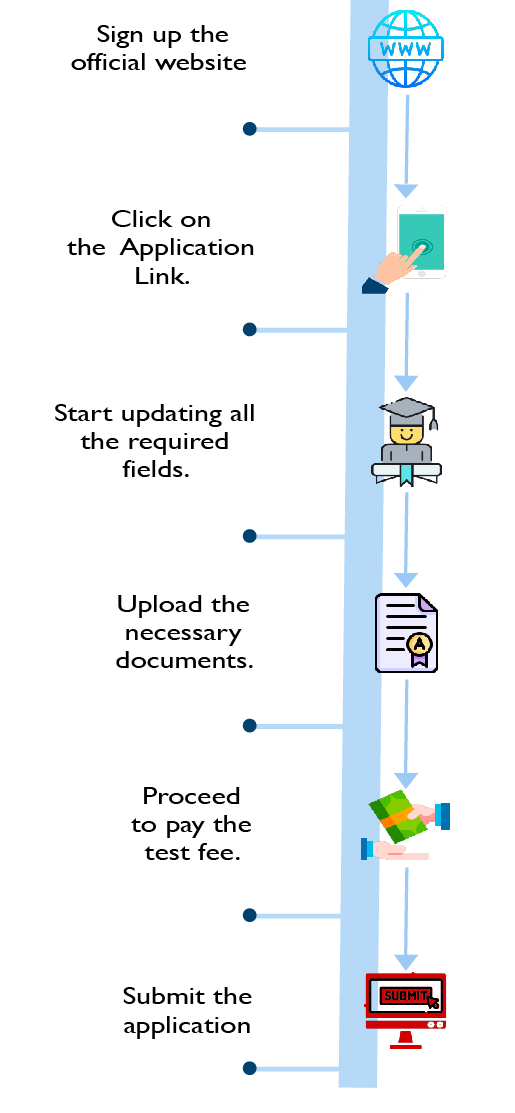The NExT exam (National Exit Text) is a licensure examination for those who aspire to practice medicine in India after completing their MBBS degree. The exam is designed to standardize medical education and ensure that medical professionals meet the required competency levels before they can practice in India. The NExT examination will replace the existing National Eligibility-Cum-Entrance Test for postgraduate seats (NEET PG) and the Foreign Medical Graduate Examination (FMGE), which are required of national and international medical graduates to register for medical practice in India. The NExT exam MBBS sets a wide range of topics including basic medical sciences, clinical subjects, and practical skills and the format of the exam includes multiple-choice questions (MCQs) and clinical assessments. The results of the NExT exam play a significant role in determining a candidate’s eligibility for PG (Postgraduate) medical admissions and the ability to work as a practicing doctor in India.
The NExT test is divided into two parts i.e. NExT-1 and NExT-2, the NExT-1 is designed to assess theoretical knowledge across various medical subjects and it is typically conducted after completion of the MBBS program and the NExT-2 is a comprehensive examination to evaluate both theoretical knowledge and clinical skills. It is necessary to obtain a license to practice medicine in the country that’s why the NExT exam acts as a licensing exam for practicing in India and an entrance exam for PG (Postgraduate) studies. According to the Ministry of Health, the main purpose of the NExT test trial is to improve the country's health insurance system and produce more qualified doctors, as mentioned above. This is also a first step towards the government's goal of ensuring that every student in the country has an exam plan.



The NExT exam is a standardized national-level exam for all medical graduates who want to practice in India, It acts as an entrance exam for admission to PG medical courses and a licensure exam for practising medicine in India. The NExT Exam Step for medical students in India is divided into two segments i.e. NExT Step 1 and NExT Step 2. Let’s explore them in brief:
NExT Step 1:
The NExT Step 1 is a theoretical examination conducted in CBT (Computer-Based Test) mode. It focuses on evaluating the knowledge of students related to medical sciences, covering both clinical and preclinical subjects.
The exam contains 6 papers that cover various topics and subjects of MBBS, each paper has multiple-choice questions (MCQs). The subjects include:
NExT Step 2:
The NExT Step 2 is a practical & clinical-based examination that evaluates the practical knowledge, clinical skills, and patient management abilities of candidates.
The NExT Step 2 is conducted after the completion of a one-year internship, it focuses on practicals, viva voce, and real-life case management studies. It also includes core clinical subjects like
Highlight
|
Aspect |
NExT Step 1 |
NExT Step 2 |
|
Exam Type |
Theoretical (MCQ-based) |
Practical and clinical |
|
Purpose |
Eligibility for internship & PG ranking |
Licensing to practice medicine |
|
Exam Format |
6 papers (CBT) covering preclinical & clinical subjects |
Practical/viva-voce-based exam |
|
Focus |
Conceptual and problem-solving |
Clinical and patient management skills |
Paper Pattern
|
Days |
Subjects |
Number of Questions |
Allotted Time |
|
Day 1 |
Medicine & allied subjects |
120 |
180 minutes |
|
Paediatrics |
60 |
90 minutes |
|
|
Day 2 |
Surgery & Allied |
120 |
180 minutes |
|
ENT |
60 |
90 minutes |
|
|
Day 3 |
Obstetrics & Gynaecology |
120 |
180 minutes |
|
Ophthalmology |
60 |
90 minutes |
|
|
Total |
540 |
810 minutes |
|
As of January 24, 2025, the NExT is scheduled to be implemented from August 2025 for final-year MBBS students of the 2020 batch. The National Medical Commission (NMC) has yet to release the official brochure detailing specific dates and further information about the exam. Candidates are advised to stay updated through official NMC communications for the most accurate and timely information.
Medicine and allied disciplines
Surgery and allied disciplines
Obstetrics and Gynaecology
Paediatrics
Otorhinolaryngology
Ophthalmology
NExT exam date 2025 is cited below:
|
Event |
Tentative Date |
|
Notification Release |
June 2025 |
|
Start of Application Form |
June 2025 |
|
Last Date to Fill Application |
July 2025 |
|
Edit Window |
July 2025 |
|
Release of Admit Card |
August 2025 |
|
NExT Step 1 Exam Date |
August 2025 |
|
Result Declaration |
September 2025 |
|
NExT Step 2 Exam Date |
February 2026 |
|
NExT Step 2 Result Declaration |
To Be Announced (TBA) |
Ans. Additional NMC NExT Step 1 exams are held once a year, and candidates who fail one or more of the six subjects are eligible to take these exams. There is no limit to the number of times you can take the next exam. The only requirement is that the candidate have passed the NExT 1 exam within 10 years of attending the MBBS.
As mentioned above, without a next exam qualification, you are not eligible to be a doctor or an intern in India.
The next exam will tend to narrow down the shortcuts many aspirants have taken in recent years to get their desired seats. Conceptual learning replaces memorization, and students need to focus more on clinical and application-based learning.
There are some significant advantages to the next exam which are given below. Uniformity through individual testing Abolition of unnecessary documents for international students Many illegal activities by unlicensed doctors will be restricted Clinical and application-based exams make MBBS graduates more qualified.
The next exam NEXT is a pattern that aims to produce more competent doctors with a more practical, applied, and clinical approach, so it has no major drawbacks compared to NEET PG. However, the next exam pattern overall lengthens the overall duration of medical education.
Apart from not being eligible for the desired seat on the PG medical course, you can take the exam next year, but you cannot complete your internship until you pass the exam. It is similar to the fourth-grade MBBS exam.
The format of the next exam is more comprehensive than the existing NEET PG, and clinical skills are thoroughly tested. The first part of this exam (NExT 1) consists of an objective MCQ-based paper whose rank determines the placement in PG medical courses and the eligibility for post-MBBS internships. The second part of NEXT (NExT 2) is practice-oriented and tests students' practical performance. If a student fails to master any part of it, that student will not be given a PG seat and a licence to practise in India.